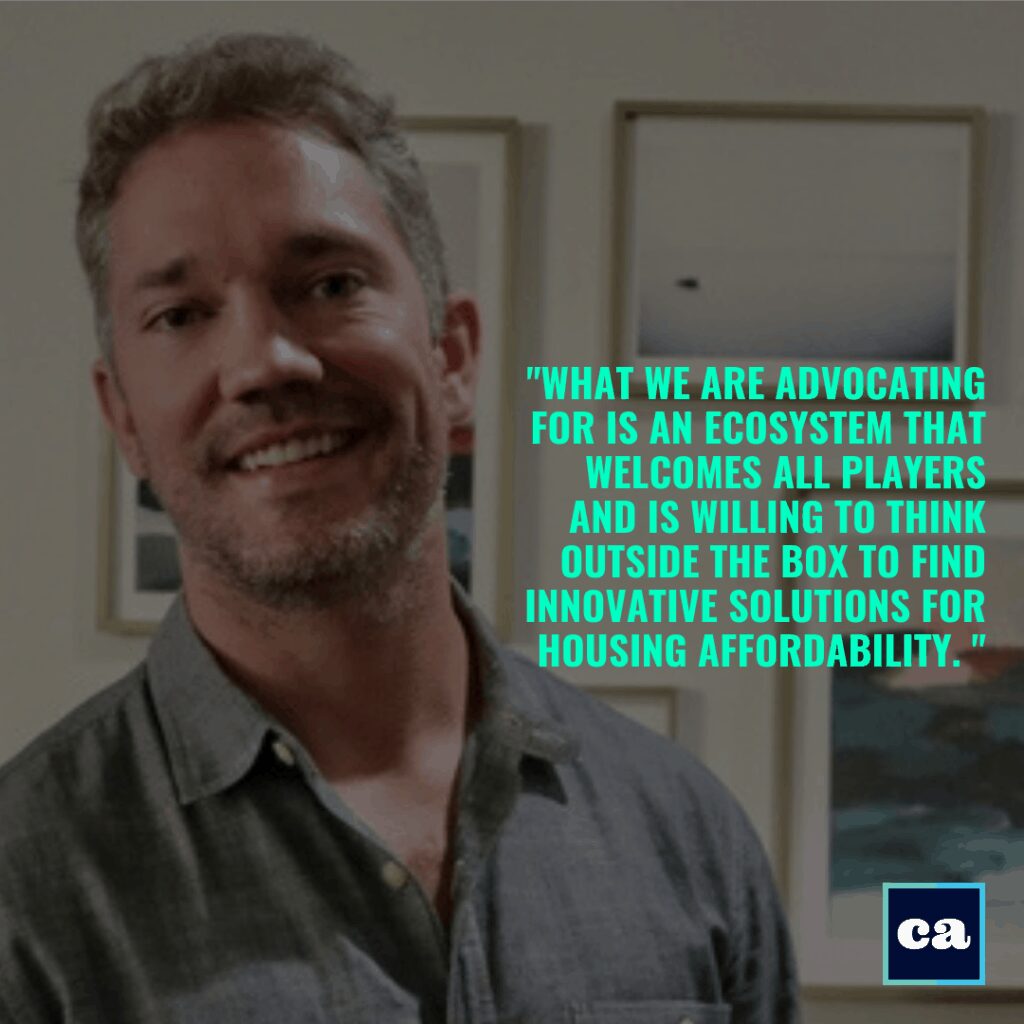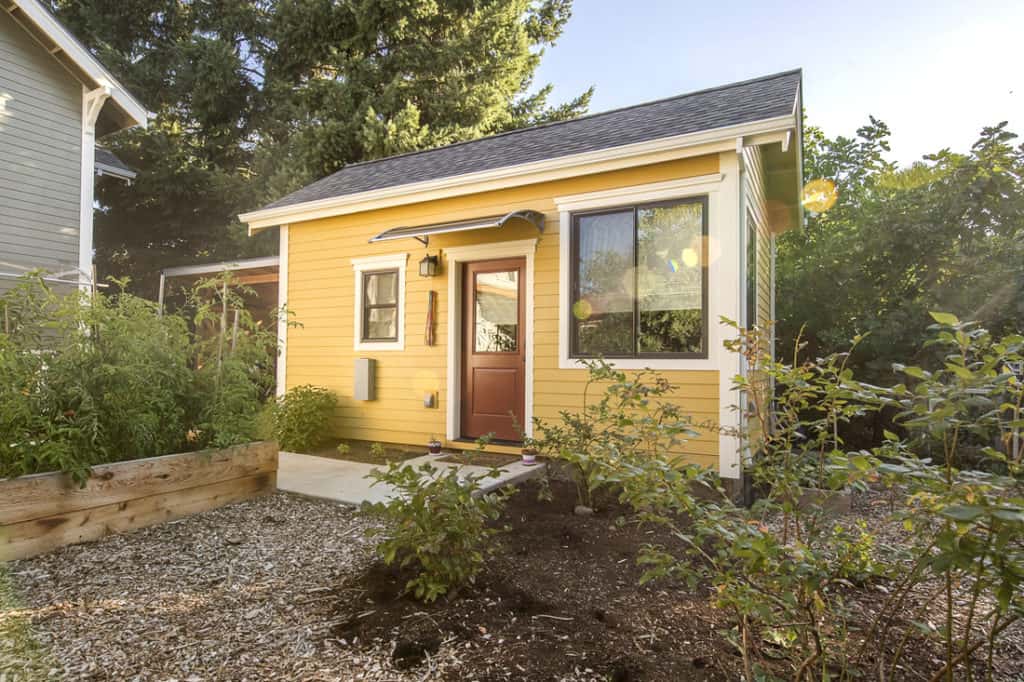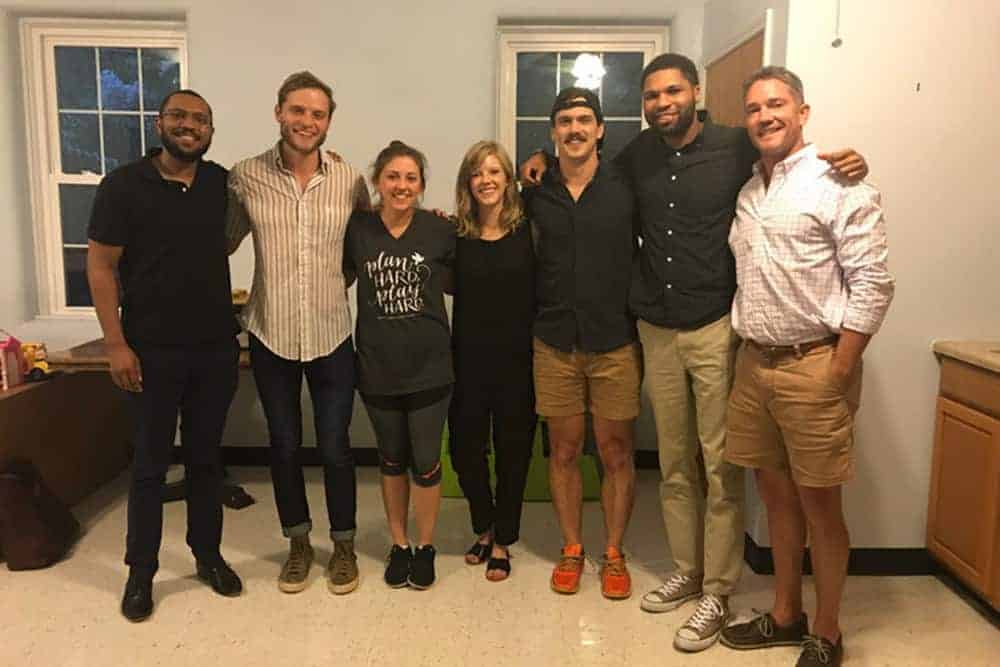Meet Swope Dreams, a community development and affordable housing nonprofit started to honor the life and legacy of Drew Swope, a housing justice advocate who passed away in the Fall of 2017. The organization operates like a venture fund for affordable housing – selecting low cost / high impact housing projects that pay back into the fund.
For example, their first project is a single family home in ATL that we acquired through a partnership with the Annie E Casey foundation. The organization is putting around $60k into renovations and will sell it under market rate to a family who meets income requirements for affordability and will put the profits back into the fund to reinvest into future projects.
Swope Dreams is trying to take a more innovative approach to traditional methods of promoting housing affordability that blends both social and financial returns. They are currently researching ways that tiny homes, container homes and other ADUs (alternative dwelling units) can be used to increase the supply of affordable housing units in urban areas.
Below is a Q&A with Zack Mellette President and Co-Founder at Swope Dreams

Q: Swope Dreams was inspired by Drew Swope, can you tell us a little bit more about his life and mission?
Drew Swope was was a passionate and tireless advocate for affordable housing and housing justice. Across his decade of experience in the space, he worked in various capacities as an activist and community organizer, but also as a developer for multi-million dollar projects.
Together we shared a vision for more inclusive and innovative urban spaces, improved public transportation, and an ecosystem of non profit and for profit corporations that worked together for the greater good of society. He passed away suddenly while on a bike ride in October of 2017, and a group of close friends and family members started a fundraiser to invest in projects to carry out his vision for Atlanta.
In less than two weeks, almost 500 people came together to raise $70k on his behalf, which demonstrates the wide scope of impact he had during his time here with us
Q: At the moment, what are the major issues facing affordable housing and how is Swope Dreams helping to combat the issue?
Two of the main forces contributing to the US Affordable Housing Crisis are a real estate boom we’ve been experiencing since the Great Recession in 2008 and rapid gentrification brought on by more and more people moving back into urban centers, where most new jobs are being created. In Atlanta, where we are currently focused, there has been a ton of development in the city that makes living here more attractive, but has also caused rent and real estate prices to skyrocket.
Our goal right now is twofold – to increase pathways to home ownership for lower income residents in neighborhoods experiencing gentrification and create ways for existing homeowners to stay in their homes despite the pressure of rising property taxes. Our first project directly addresses the first part of our mission by renovating a single family home that we acquired and making it permanently affordable through a partnership with the Atlanta Land Trust (ALT).
ALT is one of over 200 Community Land Trusts in the country, which use a shared land ownership model to keep land prices affordable, and were first started in GA during the Civil Rights movement as a way to allow Black farmers the ability to acquire affordable farmland.

Q: How can tiny homes and container homes play a big part in the future of affordable housing?
We believe that tiny homes and container homes can play a major role in the future of affordable housing by increasing both the supply of affordable housing units and overall housing density in urban areas. For a practical example, imagine a scenario where a retired individual or couple owns a single family residential home with a yard large enough to accommodate an accessory dwelling unit (ADU) such as a tiny home or container home. By installing and renting one of these units on their property, they are able to generate additional revenue to offset their potentially rising property taxes while creating an additional unit of rental housing for another individual. The mobility and flexibility of these units are also very attractive to homeowners and renters alike.
Q: What cities is Swope Dreams currently active in? What are some of the future cities that Swope Dreams plans on helping?
Swope Dreams is currently active in Atlanta, GA and more specifically in the historic Pittsburgh neighborhood. The great thing about about what we are doing here is that the lessons learned can be applied to any US city, all of which are facing the same problems we are here in varying degrees. Ultimately, we would love to see greater mindshare and collaboration between cities so that we can more quickly solve the affordable housing crisis at scale together.

Q: Does Swope Dreams look at local governments as a key component to solve the problem or a key component in the cause of the problem?
I think to address the issues at hand, we have to view local governments as key partners and stakeholders in these efforts. Because housing affects all of us, a joint effort between government, non profit and for profit organizations is needed to holistically serve the needs of the people.
Government plays a key role in zoning reform, which is a major hurdle for the adoption of tiny homes and micro units, low income housing tax credits, which incentivize developers to build more affordable units, and down payment assistance, which enables many low income buyers to purchase their first homes. So they are very important to engage!
What we are advocating for is an ecosystem that welcomes all of these players and is willing to think outside the box to find innovative solutions for housing affordability.
Q: How can we as a country and society develop better housing models?
I think we should all adopt an innovative and adaptive mindset when it comes to looking at the present and future state of housing in our country. We need to all agree that the status quo is not working out for many people, and propose bold solutions to address the needs of our residents, especially those with lower incomes who most easily get left behind and can eventually become homeless.
As we see trends in technology and labor change the landscape of our workforce, we must be adaptive to the changing needs of housing our population. Whether increasing density through tiny homes, lowering the cost of construction through 3d printing homes, or updating antiquated zoning laws; we need to be ambitious and unafraid of failure as we test out new concepts. My background is in technology, rather than housing, so I bring a “fail fast, learn quickly, and scale what works” mindset to the conversation, which I hope will prove helpful in the long run.
Latest Stories
- What are Plant Based Fibers
- 7 Sustainable and Eco Friendly Floss Options
- Anshul Magotra: How Social Innovation Circle Supports Impact Entrepreneurs
- Causeartist Brief – U.S. Department of Energy x Google, Bezos Centers for Sustainable Protein, Oregon Biochar Solutions
- Evidencity: Pioneering the Fight Against Modern Slavery Through Tech








